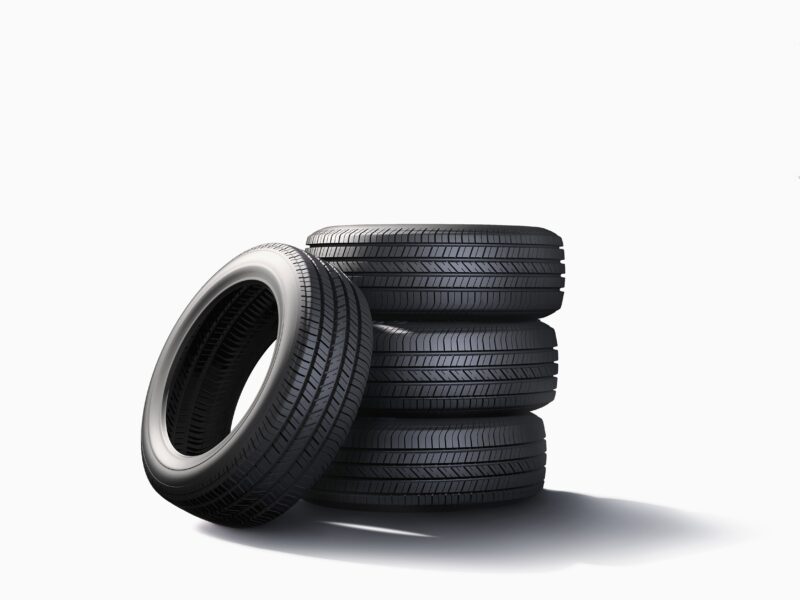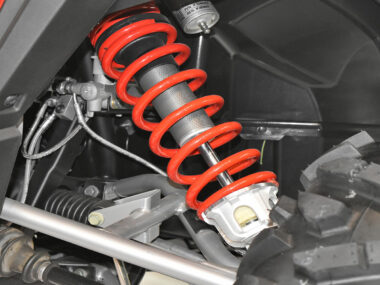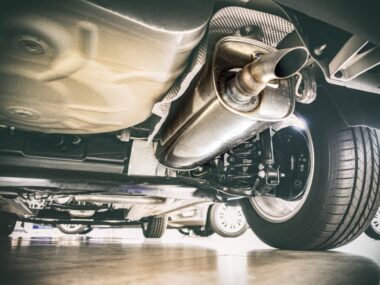Everything Yo Need to Know Before Purchasing Tires
Tires are essential components of any vehicle, providing the crucial connection between your car and the road. They are not just rubber rings; tires are intricately designed pieces of engineering that impact everything from safety and performance to fuel efficiency and comfort. The right set of tires can enhance your driving experience by offering better traction, stability and handling in various conditions.
Different types of tires are available for different needs, whether you’re navigating icy winter roads, speeding down a summer highway or exploring off-road trails. Understanding the role of tires and selecting the right ones for your vehicle can significantly influence how your car performs.
Moreover, tires play a vital role in your vehicle’s overall efficiency. Proper tire maintenance, including regular pressure checks, rotation and alignment, can extend their lifespan and improve fuel economy. Innovations in tire technology are also paving the way for smarter, more sustainable driving.
From smart tires that monitor their own pressure and condition to self-healing and eco-friendly models, the future of tires is geared toward enhancing safety, performance and environmental responsibility. Tires may often be overlooked, but their importance in your vehicle’s function and safety cannot be overstated.
The Basics of Tires: What Are They and How Do They Work?
A tire is a complex assembly of rubber, fabric and steel designed to provide a cushion between your vehicle and the road. The purpose of tires extends beyond mere movement; they offer traction, handling and a smooth ride. Understanding how tires work can help you appreciate their role and take better care of them.
A typical tire consists of several layers:
- Tread: The outermost layer that comes in contact with the road. The tread pattern affects traction and handling. Different tread patterns are designed for different driving conditions, like wet or icy roads.
- Sidewall: The part of the tire between the tread and the rim. It provides flexibility and absorbs road impacts.
- Belt: Beneath the tread, belts made of steel or fabric provide strength and help maintain the tire’s shape.
- Inner Liner: This layer holds the air within the tire, maintaining the correct pressure.
Why Tires Are Crucial for Vehicle Performance
Tires are the only contact your vehicle has with the road, making them critical for performance and safety. Here’s how tires impact your driving experience:
- Traction: Good tires improve your vehicle’s grip on the road, which is essential for braking, acceleration and cornering. The tread pattern plays a significant role here. For instance, all-season tires offer a balance of performance in various conditions, while winter tires are designed to handle snow and ice.
- Comfort: Tires absorb shocks from the road, providing a smoother ride. Properly inflated tires can reduce road noise and enhance overall comfort.
- Fuel Efficiency: The type and condition of your tires can impact fuel consumption. Under-inflated tires increase rolling resistance, causing your engine to work harder and consume more fuel.
Types of Tires: Finding the Right Fit
Choosing the right tire for your vehicle can be overwhelming, given the numerous types available. Here’s a breakdown of the most common types:
- All-Season Tires: These are the most versatile and popular choice. They offer a good balance of performance in different weather conditions, including dry, wet and light snow.
- Winter Tires: If you live in an area with severe winter conditions, winter tires are a must. They are designed with deeper treads and special rubber compounds to provide better grip in snow and ice.
- Summer Tires: Known for their superior performance in warm and dry conditions, summer tires offer excellent handling and braking. However, they don’t perform well in cold or snowy weather.
- All-Terrain Tires: Ideal for off-road enthusiasts, these tires can handle various terrains, including mud, gravel and sand. They are often used on SUVs and trucks.
- Performance Tires: Designed for high-speed stability and cornering, performance tires are commonly found on sports cars and performance vehicles.
How to Choose the Right Tire for Your Vehicle
Selecting the right tire depends on several factors:
- Driving Conditions: Consider your typical driving environment. If you frequently drive in harsh weather conditions, invest in specialized tires.
- Vehicle Type: Ensure the tire matches your vehicle’s specifications. Different vehicles require different sizes and types of tires.
- Budget: Tires vary in price. While it’s tempting to go for the cheapest option, investing in quality tires can offer better performance and longevity.
Tire Maintenance: Prolonging the Life of Your Tires
Maintaining your tires is crucial for their longevity and performance. Here are some essential tips:
- Regularly Check Tire Pressure: Proper inflation is vital. Under-inflated tires can lead to reduced fuel efficiency and increased wear, while over-inflated tires can cause a harsh ride and uneven wear.
- Rotate Your Tires: Regular rotation ensures even wear across all tires. Most experts recommend rotating your tires every 6,000 to 8,000 miles.
- Balance and Alignment: Proper balancing and alignment prevent uneven wear and ensure smooth handling. Misalignment can cause your vehicle to pull to one side and lead to premature tire wear.
- Inspect for Damage: Regularly check for visible damage, such as cuts, punctures or bulges. Address any issues promptly to avoid further damage.
The Future of Tires: Innovations on the Horizon
The tire industry is constantly evolving, with new technologies and innovations aiming to enhance performance, safety and sustainability. Here are some exciting developments:
- Smart Tires: Equipped with sensors, smart tires can monitor tire pressure, temperature and tread depth in real-time. This technology provides valuable data to optimize performance and safety.
- Self-Healing Tires: These tires contain a special gel that can seal small punctures automatically, reducing the risk of flats and extending tire life.
- Sustainable Materials: Manufacturers are exploring the use of renewable and eco-friendly materials in tire production. The goal is to reduce the environmental impact of tire manufacturing and disposal.
- Run-Flat Tires: Designed to continue functioning even after a puncture, run-flat tires allow drivers to safely reach a repair shop without changing a flat tire on the roadside.
Tire Myths Debunked
There are plenty of misconceptions about tires that can lead to confusion and potentially unsafe practices. Let’s clear up a few common myths:
- Myth: You Only Need to Check Tire Pressure Once a Year. Fact: Tire pressure should be checked monthly. Changes in temperature can affect pressure levels.
- Myth: New Tires Don’t Need Immediate Alignment. Fact: New tires should always be aligned to prevent uneven wear and ensure proper handling.
- Myth: All-Terrain Tires Are Suitable for All Conditions. Fact: While all-terrain tires are versatile, they may not perform as well as specialized tires in extreme conditions.
Tires might seem like a basic component of your vehicle, but their impact on performance, safety and comfort is profound. By understanding the types of tires, maintaining them properly and staying informed about new technologies, you can ensure that your tires continue to serve you well. Whether you’re driving through city streets or off-road trails, your tires are the unsung heroes that keep you moving forward safely and efficiently.
So, next time you hit the road, give a nod to those rubber circles beneath you – they’re doing more than you might think.
Frequently Asked Questions About Tires
What are the main types of tires and how do I choose the right one for my vehicle?
The main types of tires include all-season, winter, summer, all-terrain and performance tires. The right tire for your vehicle depends on your typical driving conditions, climate and vehicle type. For general use, all-season tires offer versatility. For harsh winter conditions, winter tires provide better traction. For high-performance vehicles, performance tires offer superior handling.
How often should I check my tire pressure?
You should check your tire pressure at least once a month. Tire pressure can fluctuate with temperature changes and proper inflation is crucial for safety, fuel efficiency and tire longevity.
What is tire rotation and how often should it be done?
Tire rotation involves moving tires from one position on your vehicle to another to ensure even wear. It is typically recommended every 6,000 to 8,000 miles or as specified by your vehicle’s manufacturer.
How can I tell if my tires need to be replaced?
Signs that your tires need replacement include low tread depth (less than 2/32 of an inch), visible cracks or bulges, uneven wear patterns and frequent loss of air pressure. A tread depth gauge or the penny test can help you assess tread wear.
What is the difference between all-season and summer tires?
All-season tires offer a balance of performance in various weather conditions, including light snow and rain. Summer tires are designed for optimal performance in warm, dry conditions and provide better handling and braking but are not suitable for cold or snowy weather.
Are there benefits to using run-flat tires?
Yes, run-flat tires can continue to operate even after a puncture, allowing you to drive to a repair shop without needing to change the tire immediately. This can be especially convenient in emergencies and reduce the risk of roadside incidents.
How does tire alignment affect my vehicle?
Proper tire alignment ensures that your tires make correct contact with the road, leading to improved handling, reduced tire wear and better fuel efficiency. Misalignment can cause your vehicle to pull to one side and lead to uneven tire wear.
What are smart tires and how do they work?
Smart tires are equipped with sensors that monitor tire pressure, temperature and tread depth in real-time. This technology provides valuable data to enhance performance, safety and maintenance by alerting you to potential issues before they become serious.
Can I mix different types of tires on my vehicle?
It is generally not recommended to mix different types of tires on the same vehicle, as this can affect handling, stability and safety. For optimal performance, all tires should ideally be of the same type, brand and tread pattern.
How can I extend the life of my tires?
To extend tire life, ensure proper inflation, regularly rotate your tires, have them aligned and balanced and inspect them for damage. Avoid aggressive driving, overloading your vehicle and running on under-inflated tires.





